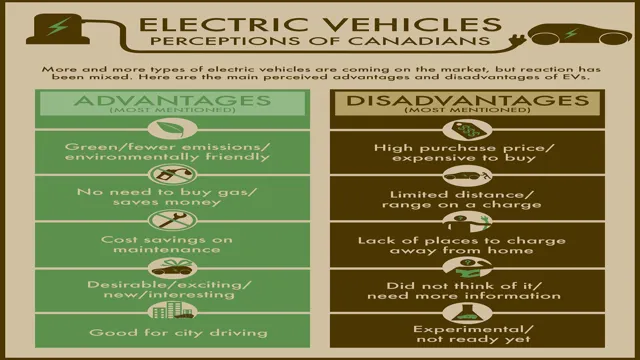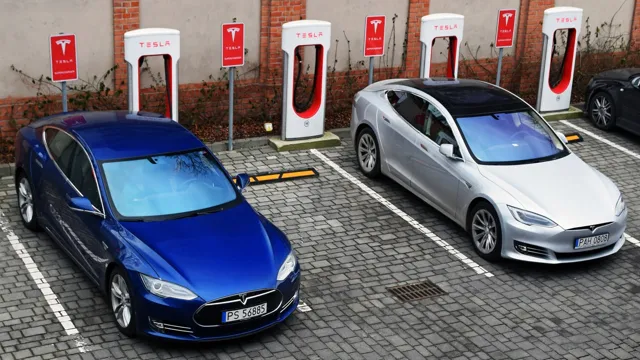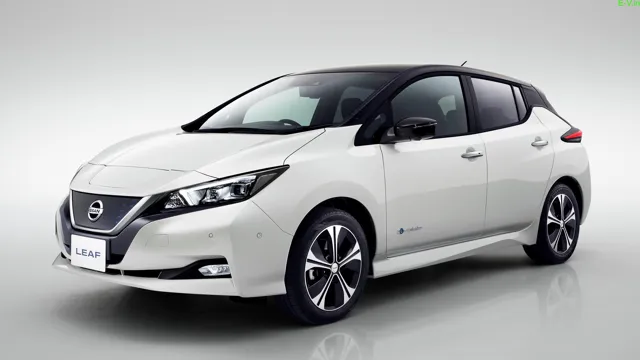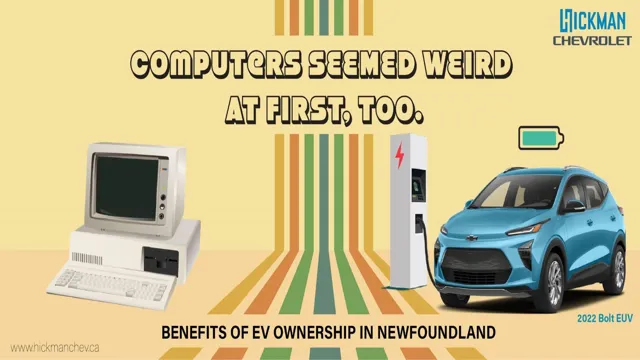Electric Cars: Are They Worth the Switch? Weighing the Pros and Cons
Electric cars have been a hot topic of discussion in the recent past. With the increasing concern for the environment and the rising cost of fuel, electric cars seem to be an attractive alternative for many. But what are the benefits and drawbacks of owning an electric car? In this blog, we will delve into the key advantages and disadvantages of using electric cars and help you make a more informed decision when considering the switch to electric.
Whether you are a car enthusiast, an environmentally conscious individual, or a curious reader, this blog is for you. So, fasten your seatbelts and let’s explore the world of electric cars.
Benefits
When it comes to electric cars, there are several benefits and drawbacks to consider. On the one hand, electric cars are much better for the environment than traditional gasoline-powered vehicles. They produce no emissions, which means they don’t contribute to air pollution or climate change.
Additionally, electric cars are much quieter to operate, providing a more peaceful driving experience. On the other hand, electric cars can be more expensive to purchase than traditional vehicles, and charging times can be longer than filling up at a gas station. Additionally, the range of electric cars may be limited, making longer trips difficult without planning ahead.
However, as more charging stations are installed and technology improves, these drawbacks are becoming less significant. Overall, the benefits of electric cars outweigh the drawbacks for those who prioritize environmental responsibility and a quieter driving experience.
Zero Emissions
Zero emissions are becoming increasingly important in our modern world as we strive for a cleaner environment. By using technologies that produce no greenhouse gasses or pollutants, we can reduce our carbon footprint and help prevent climate change. One of the biggest benefits of zero emissions is the reduced health impacts on both humans and the environment.
By eliminating harmful emissions, we can improve air quality, reduce respiratory illnesses, and prevent water contamination. Additionally, zero emissions technologies can also spur innovation and economic growth. Industries that adopt these technologies can become leaders in the green economy, creating new jobs and driving economic growth.
Overall, transitioning to zero emissions technology is a win-win for everyone, benefiting both the planet and society.
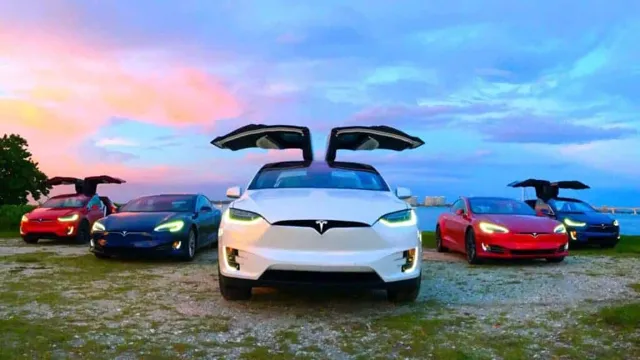
Low Operating Costs
When it comes to operating costs, every business owner wants to keep them as low as possible while still maximizing profits. One way to achieve this is by utilizing technology that is designed with low operating costs in mind. For example, cloud-based software can be a game-changer for businesses of all sizes.
By using cloud-based software, companies can significantly reduce the costs associated with maintaining on-site servers and hardware. Additionally, cloud computing allows for greater scalability, which means the system can grow as the business grows, reducing the needs for expensive overhauls down the road. By using cloud-based technology, business owners can create a more cost-effective, streamlined operation that delivers exceptional value to customers.
The result is long-term success and stability for the organization. So, if you’re worried about rising operating costs and want to cut down on expenses, consider implementing cloud-based solutions to make your business more agile and efficient.
Quiet Ride
If you’re someone who values a peaceful and enjoyable driving experience, you’ll love the benefits that come with a quiet ride. First and foremost, a quiet ride reduces stress levels, making your travels much more relaxing and enjoyable. You won’t have to shout over the sound of the wind or engine, meaning conversations with passengers are much more comfortable as well.
Additionally, a quieter ride reduces the risk of hearing damage, particularly if you frequently drive for long periods. And let’s not forget about the improved audio experience, as you’ll be better able to enjoy your music or podcasts without any background noise. All in all, a quiet ride is a game changer for any driver looking to enhance their driving experience.
Drawbacks
While electric cars are becoming increasingly popular, there are still some drawbacks to consider. One of the biggest issues is the limited driving range of these vehicles. While many newer models can go up to 300 miles on a single charge, this still pales in comparison to the range of a traditional gas-powered vehicle.
This can make long road trips more challenging, as drivers will need to carefully plan out their charging stops. Additionally, electric cars can be more expensive upfront, although they often have lower maintenance and fuel costs over their lifetime. It’s also worth noting that not all areas have a robust charging infrastructure yet, which can limit the practicality of owning an electric car if you don’t live near a charging station.
Overall, while there are certainly benefits to electric cars, it’s important to carefully consider your needs and lifestyle before making the switch.
Limited Driving Range
One major drawback of electric cars is their limited driving range, which can vary depending on the make and model. Electric vehicles have come a long way in recent years, with some boasting over 300 miles of range on a single charge. However, this is still significantly less than the potential range of a gas-powered car with a full tank.
Drivers of electric cars must carefully plan their routes and charging stops to avoid getting stranded on the side of the road. This can be a major inconvenience for those who frequently take long road trips or have a daily commute that exceeds the car’s range. Despite the inconvenience, advances in technology are continuously improving the driving range of electric cars, and as we move towards a more sustainable future, the trade-offs become more and more worthwhile.
Long Charging Times
One of the major drawbacks of electric vehicles is their long charging times. While gas-powered cars can easily be refueled in a matter of minutes, EVs require several hours to charge fully. This can be a major inconvenience for drivers who are used to the quick turnaround times of traditional cars.
However, it’s important to note that not all EVs have the same charging times, and newer models are being developed with quicker charging capabilities. Additionally, many charging stations are now being installed in public areas, which can alleviate some of the issue of long charging times. While it may seem like a major setback, it’s important to remember the long-term benefits of driving an EV, such as decreased carbon emissions and lower fuel costs.
High Initial Cost
When considering the installation of certain high-quality systems or products in your home or business, one of the main drawbacks you’ll likely encounter is the high initial cost. While these systems may provide numerous benefits and cost savings in the long run, they can be a significant financial investment upfront. For example, solar panels, which can greatly reduce your electricity bills and even enable you to sell energy back to your utility company, can cost tens of thousands of dollars to install.
While this may seem daunting, it’s important to remember that these systems can pay for themselves over time and can even increase the value of your property. It’s also worth exploring financing options and incentives that can help offset the initial cost. In the end, the long-term benefits of these systems often far outweigh the initial investment.
Future Outlook
When it comes to the benefits and drawbacks of electric cars, there are several factors to consider. One of the most significant advantages of electric cars is their environmental friendliness. Since they don’t produce any harmful emissions, they’re an excellent option for anyone who wants to reduce their carbon footprint.
Additionally, electric cars are generally more efficient and less expensive to operate than traditional gasoline-powered vehicles, which can save you money in the long run. However, there are also some drawbacks to consider. One of the biggest concerns is the limited range of most electric cars, which can make long-distance travel challenging.
Additionally, electric cars are generally more expensive upfront than traditional vehicles, which can be a significant barrier for some buyers. Overall, electric cars are an excellent option for those looking to reduce their environmental impact and save money on fuel costs, but they may not be the best choice for everyone.
Advancements in Battery Technology
When it comes to advancements in battery technology, the future outlook is bright. We’re seeing a lot of exciting developments that promise to make batteries more efficient, longer-lasting, and safer to use. One of the most promising areas of research right now is in solid-state batteries, which use a solid electrolyte instead of the liquid or gel electrolytes found in traditional batteries.
This has several advantages, including higher energy density, faster charging, and reduced risk of fire or explosion. Another exciting area of research is in the use of nanomaterials and graphene to improve the performance of batteries. By incorporating these materials into battery electrodes, researchers are able to increase energy output, reduce charging time, and increase the overall lifespan of the battery.
With all these advancements in the pipeline, it’s clear that the future of battery technology is looking brighter than ever before. As we move towards a more sustainable future, efficient and long-lasting batteries will play a crucial role in powering our homes, vehicles, and devices.
Decreasing Costs
When it comes to the future outlook for decreasing costs in various industries, technological advancements and innovations are the driving forces leading the way. With the integration of automation, artificial intelligence, and other cutting-edge technology, it’s becoming increasingly possible for businesses to streamline their operations and reduce expenses on numerous fronts. The use of AI-powered chatbots, for example, has allowed companies to cut down on the need for live customer service agents, and the implementation of automated production lines has helped manufacturers decrease their labor costs.
These advancements also have the potential to bring about greater efficiency and speed to processes, resulting in improved bottom lines. As more companies continue to invest in these technologies, we can expect to see a shift towards cost savings and greater profitability across the board.
Conclusion
After examining the benefits and drawbacks of electric cars, we can conclude that they are an environmentally friendly option with lower long-term costs, but they still face limitations such as range anxiety and a lack of available charging infrastructure. However, it’s worth noting that as technology advances and more resources are invested in electric vehicles, these drawbacks may become less of an issue. In the end, whether you choose to go electric or stick with a traditional gas-powered car, the important thing is that we continue to be mindful of our impact on the planet and seek out sustainable transportation solutions for the future.
“
FAQs
What are the benefits of owning an electric car?
Electric cars are environment-friendly as they emit zero emissions, they are less expensive to operate and maintain, and they offer instant torque and quick acceleration.
What are the drawbacks of owning an electric car?
Electric cars have limited range, which means they can only travel for a limited number of miles before needing a recharge. They also have higher upfront costs compared to traditional gas-powered cars.
How does the cost of owning an electric car compare to a gas-powered car?
The cost of owning an electric car is generally higher than owning a gas-powered car upfront, but the cost of operating and maintaining the electric car is significantly lower in the long run.
What is the charging time for an electric car?
The charging time for an electric car depends on the charging method used. Fast charging can take anywhere from 30 minutes to an hour, while Level 2 charging can take a few hours. Home charging with a standard outlet can take up to 24 hours for a full charge.
